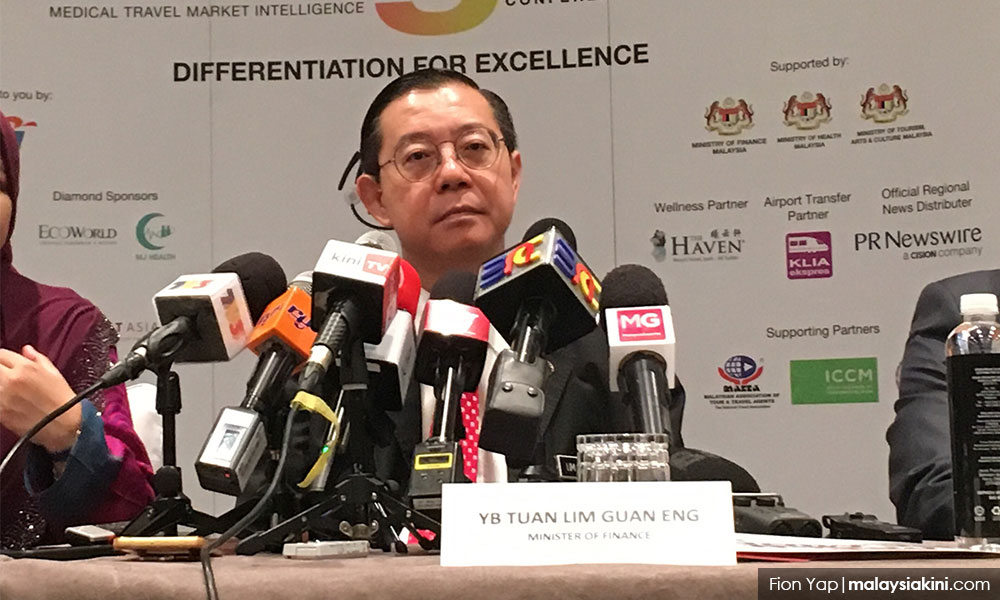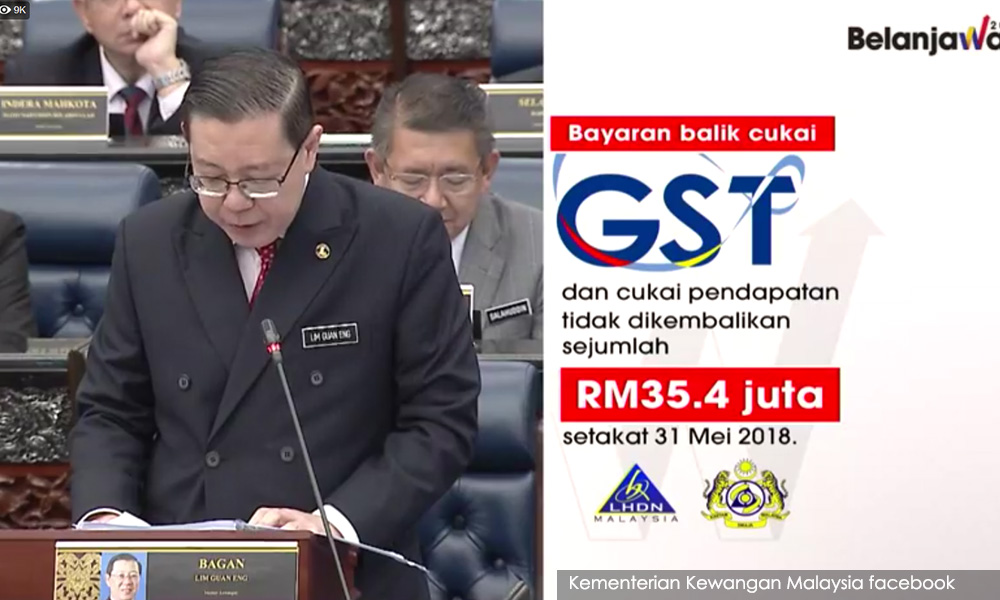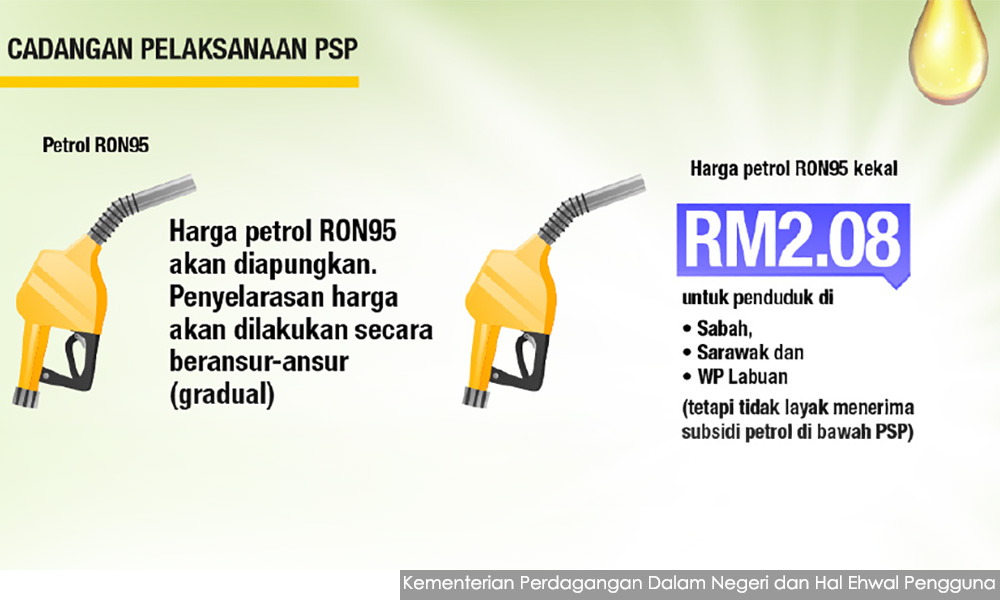
QUESTION TIME | With Pakatan Harapan into its second budget, will it take less popular but more effective measures, such as bringing back the goods and services tax (GST), introduce a broad-based capital gains tax and an inheritance tax?
Most likely not, going by Finance Minister Lim Guan Eng’s (above) assertion that there will be no new taxes. Thus, expect a populist tax, the usual noises with trite not-entirely-true arguments about the previous government policies and how it led to that oft-repeated RM1 trillion debt which is not. It only is if you add other things such as contingencies and obligations under public-private partnerships.
If this government is serious about addressing the real economic issues facing the country, then it should tax those who can afford to pay (but not too much) and give breaks (but not too much) to those who can’t afford to pay.
It should remove subsidies in favour of cash awards and get rid of import taxes progressively so we are keyed into the global economy and benefit from its efficiencies while driving our own industries to become more efficient. This is one of the key ways to become economically competitive, instead of a rentier economy where we provide selective benefits to cronies via peculiar taxes, permits and needless protection.
Let’s look at some key ways to increase tax revenue, and some ways we can give back to the rakyat.
Ways to get revenue from the haves:
1. Reintroduce GST. This is an excellent broad-based consumption tax which taxes consumption and provides a wide array of exemptions so that the poor are not affected. The mechanism is in place already. You just have to apply a rate, say the previous six percent. It would double tax collection to RM44 billion over the current sales and services tax. In addition, it provides an audit trail for transactions, making it much easier to detect tax evasion, indirectly increasing income tax collection.

2. Introduce a broad capital gains tax which mirrors that of the real property gains tax. If gains on property sales can be taxed by 5-30 percent, depending on when you sell it from the time of purchase, why can’t the same be done for sales of shares, bonds and, for that matter, any asset? Talk that it would affect the market is rubbish - most developed countries have such a tax. It has not killed their markets. Now is a good time to introduce it when the markets are depressed, and there is not much chance of gain. It cuts needless speculation on the market and keeps good records. Those who say they made money on the market can now prove it by tax payments.
3. Remove pioneer tax incentives for companies. This is one of those provisions which are abused. US companies still pay tax anyway to the US, even if they are given exemptions here. Evidence indicates that tax allowances play little part in investment decisions and may even be considered subsidies under international trade treaties.
4. Have an inheritance tax for all sums above a set amount, say RM2 million. There is an argument to impose an estate duty on amounts above a certain amount because this involves the transfer of wealth to a new generation. Many countries have this tax, and this will not be a burden on the rakyat at large.
5. Announce measures to get the large tax evaders. Time and again, it has been suggested that Inland Revenue Board checks car and property records to see if those who have wealth have declared them, but this does not seem to be done. Instead, those who file their returns even a day late are imposed thousands of dollars in penalties, even if they have already paid their taxes. Such is the plight of salaried workers.
6. Reduce subsidies on oil. It has been shown that subsidies on oil and oil products benefit the higher income group, rather than the lower-income group. The easy solution to solve the problem for those who earn less is simply to give them cash grants based on the quantum of the oil price increase. It's a mystery why the government can’t take this simple step.

Here’s a list of how the government can give back some:
1. Remove the residual five percent real estate tax after five years. In the last budget, the government introduced a measure to have a residual five percent tax on real property gains tax, no matter how long you have held the property, a rather unpopular tax. Rescinding these may redress inequities, while giving a little respite to the secondary property market.
2. More cash payments for the lower-income group. If oil subsidies are removed in favour of targeted payments to the low-income group, this will easily be possible and does not forgo much revenue.
3. Get rid of approved permits and progressively reduce tax on cars. Both of these anomalies largely benefit cronies and inefficient, uncompetitive industries, extracting huge payments from the rakyat.
4. Reduce import tax on all categories of consumables. This is the corollary of the three above, and will provide the opportunity for the rakyat to benefit unhindered from productivity increases around the world, while forcing our industries to become competitive in turn.
5. Raise the minimum wage. Let’s face it, RM980 is simply too little for a household of, say five, to survive on in a month. The government should commit to increasing this to at least RM2,000 within five years by progressive increases in the minimum wage.
4. Cut road taxes on higher capacity cars. This is an anomaly from days gone by, when cars were heavily taxed if their capacity went beyond 3,000cc. I have a personal interest in this - I drive an old 3,200cc German car which cost less than a Myvi, but drives well and is surprisingly fuel-efficient when compared with the Proton X70. But the road tax is terribly unfair - over RM3,000 a year!
I am not too sure that any of these measures will be implemented, but it is these kinds of measures, together with a well-articulated and effective economic policy that will make a difference to the rakyat.
Otherwise, it is going to the usual boring rhetoric all over again, with a sprinkling of statements to irritate the opposition and blame them for all the ills the country faces, without offering solutions.
Harapan does need to come out of its opposition mode to be more creative about the budget and economic policy-making.
P GUNASEGARAM is editor-in-chief of Focus Malaysia. He says few budgets anywhere have been game changers. - Mkini


No comments:
Post a Comment
Note: Only a member of this blog may post a comment.